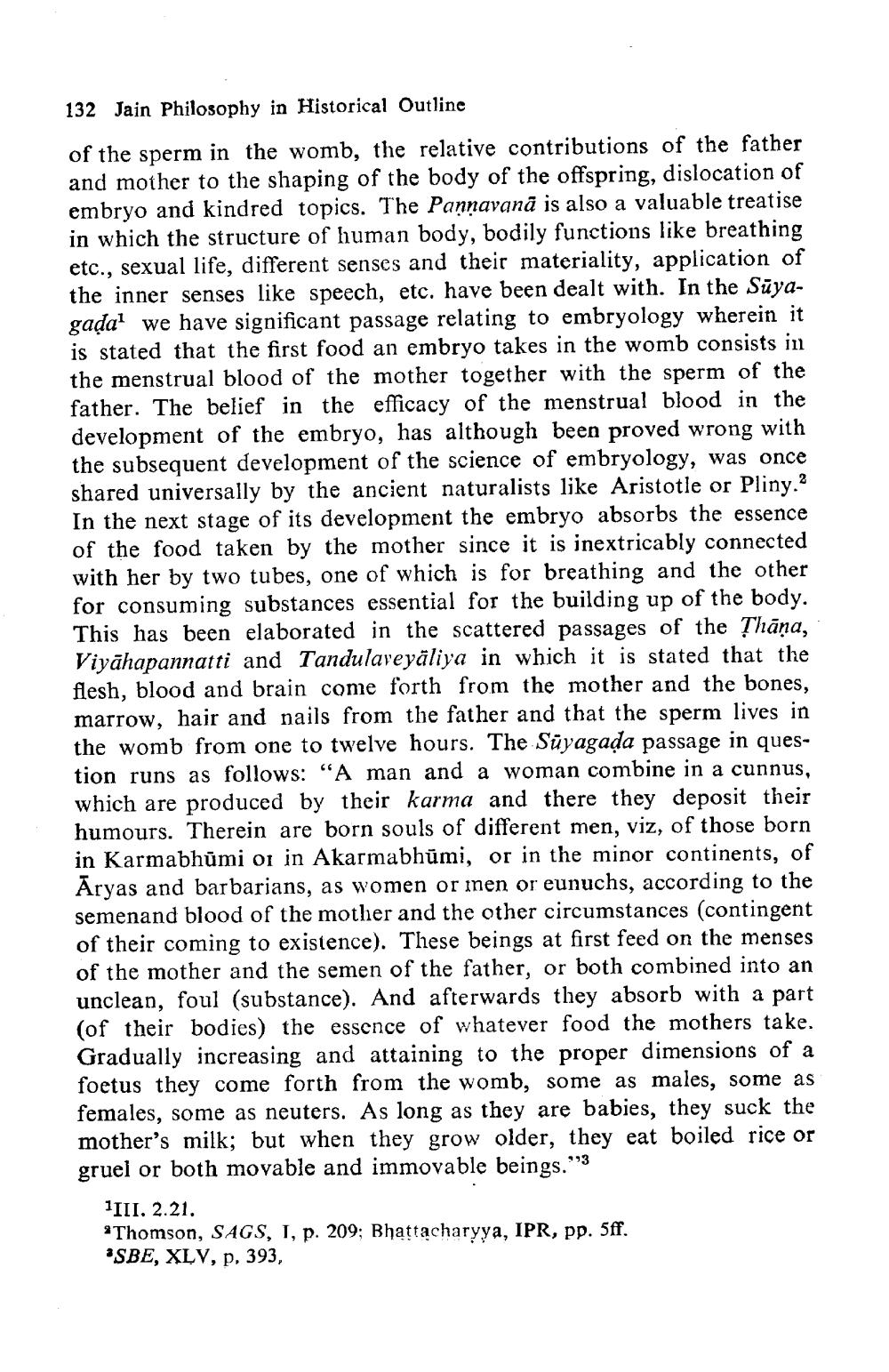________________
132 Jain Philosophy in Historical Outline of the sperm in the womb, the relative contributions of the father and mother to the shaping of the body of the offspring, dislocation of embryo and kindred topics. The Paņņavanā is also a valuable treatise in which the structure of human body, bodily functions like breathing etc., sexual life, different senses and their materiality, application of the inner senses like speech, etc. have been dealt with. In the Süyagadat we have significant passage relating to embryology wherein it is stated that the first food an embryo takes in the womb consists in the menstrual blood of the mother together with the sperm of the father. The belief in the efficacy of the menstrual blood in the development of the embryo, has although been proved wrong with the subsequent development of the science of embryology, was once shared universally by the ancient naturalists like Aristotle or Pliny.? In the next stage of its development the embryo absorbs the essence of the food taken by the mother since it is inextricably connected with her by two tubes, one of which is for breathing and the other for consuming substances essential for the building up of the body. This has been elaborated in the scattered passages of the Thāna, Vivāhapannatti and Tandulaveyāliya in which it is stated that the flesh, blood and brain come forth from the mother and the bones, marrow, hair and nails from the father and that the sperm lives in the womb from one to twelve hours. The Süyagada passage in question runs as follows: “A man and a woman combine in a cunnus, which are produced by their karma and there they deposit their humours. Therein are born souls of different men, viz, of those born in Karmabhūmi on in Akarmabhumi, or in the minor continents, of Āryas and barbarians, as women or inen or eunuchs, according to the semenand blood of the mother and the other circumstances (contingent of their coming to existence). These beings at first feed on the menses of the mother and the semen of the father, or both combined into an unclean, foul (substance). And afterwards they absorb with a part (of their bodies) the essence of whatever food the mothers take. Gradually increasing and attaining to the proper dimensions of a foetus they come forth from the womb, some as males, some as females, some as neuters. As long as they are babies, they suck the mother's milk; but when they grow older, they eat boiled rice or gruel or both movable and immovable beings.''3
1I11, 2.21. *Thomson, SAGS, I, p. 209; Bhattacharyya, IPR, pp. 5ff. *SBE, XLV, p. 393,




